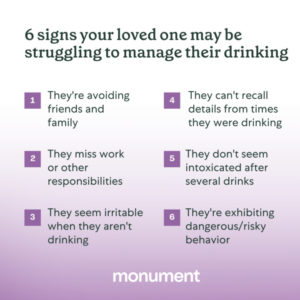
If you find yourself pondering over your partner’s drinking habits, you’re not alone. It’s natural for us to wonder about certain aspects of our loved ones’ behaviors, especially when it comes to alcohol consumption. In this article, we explore the significance of being concerned about your partner’s drinking habits and provide insightful perspectives on how it can impact your relationship and overall well-being. Let’s delve into this topic and gain a better understanding of its importance.
What are drinking habits?
Definition of drinking habits
Drinking habits refer to the patterns and behaviors associated with an individual’s consumption of alcohol. It encompasses the frequency, quantity, and context in which alcohol is consumed. Drinking habits can vary widely among individuals, and they can influence various aspects of a person’s life, including their relationships, physical and mental health, and overall well-being.
Types of drinking habits
There are various types of drinking habits that individuals may exhibit. Some people may have occasional social drinking habits, where they consume alcohol in moderation during social gatherings or special occasions. Others may have regular drinking habits, consuming alcohol on a daily or weekly basis as a means of relaxation or coping with stress. At the same time, some individuals may engage in harmful drinking habits, such as excessive alcohol consumption or frequent episodes of binge drinking.
Factors influencing drinking habits
Several factors can influence a person’s drinking habits. These may include societal and cultural influences, personal beliefs and attitudes toward alcohol, family background, peer pressure, mental health issues, and coping mechanisms. It is important to recognize that drinking habits can be shaped by a combination of these factors, and understanding them can provide insights into why an individual may have certain drinking patterns.
Signs of problematic drinking habits
Excessive alcohol consumption
One of the signs of problematic drinking habits is excessive alcohol consumption. This refers to a consistent pattern of consuming large quantities of alcohol, often exceeding the recommended limits set by health authorities. Excessive alcohol consumption can lead to numerous health problems and increase the risk of developing alcohol-related disorders.
Frequent episodes of binge drinking
Binge drinking is another red flag for problematic drinking habits. It is characterized by consuming a large amount of alcohol in a short period, typically within two hours, with the intention of getting intoxicated. Frequent episodes of binge drinking can indicate a lack of control over one’s alcohol consumption and may lead to harmful consequences for both physical and mental health.
Neglecting responsibilities
When drinking habits start interfering with daily responsibilities, such as work, school, or family obligations, it can signal a problem. Neglecting responsibilities can include skipping work or school due to alcohol-related issues, neglecting household chores, or failing to fulfill commitments to loved ones. Such neglect can strain relationships and have adverse effects on overall well-being.
Changes in behavior or mood
Problematic drinking habits often result in noticeable changes in behavior or mood. This can manifest as increased irritability, mood swings, aggression, or becoming unpredictable. Alcohol’s impact on brain chemistry can contribute to these changes and may significantly affect an individual’s emotional well-being, often leading to strained relationships and conflicts.
Relationship issues
Relationships can be significantly impacted by problematic drinking habits. Alcohol can affect communication, trust, and emotional intimacy, leading to relationship discord. Partners may feel neglected, hurt, or betrayed due to the effects of alcohol on their loved one’s behavior and priorities. Relationship issues resulting from drinking habits can further contribute to a vicious cycle of alcohol use as a coping mechanism.

This image is property of ahauk.org.
Understanding the impact of drinking habits on relationships
Trust issues
Problematic drinking habits can erode trust within a relationship. When alcohol consumption becomes excessive or leads to harmful behavior, such as lying about drinking or breaking promises, trust can be severely damaged. Partners may struggle to rely on each other, leading to a breakdown in the foundation of a healthy relationship.
Communication breakdown
Alcohol’s effects on cognitive function and communication skills can lead to a breakdown in healthy communication within a relationship. Under the influence of alcohol, individuals may struggle to express themselves effectively or may become argumentative and defensive. This can hinder open and honest communication, making it difficult to address underlying issues or work towards resolution.
Increased conflict and arguments
Problematic drinking habits often contribute to increased conflict and arguments within a relationship. Alcohol can lower inhibitions and amplify emotions, leading to more frequent and intense disagreements. These conflicts may revolve around the drinking itself, responsibilities that are neglected due to alcohol use, or the impact of alcohol on the relationship.
Emotional and physical abuse
In severe cases, problematic drinking habits can escalate to emotional or physical abuse within a relationship. Alcohol’s disinhibiting effects can lead to aggression, violence, or manipulative behavior. Partners may find themselves in an unhealthy and potentially dangerous situation, where their emotional and physical well-being is compromised.
Financial strain
Drinking habits can also have a significant impact on financial stability within a relationship. The cost of alcohol itself, coupled with potential legal consequences or medical expenses related to alcohol-related issues, can strain financial resources. This strain can add stress to the relationship and make it even more challenging to address the underlying drinking habits.
Factors to consider when evaluating your partner’s drinking habits
Frequency and quantity of alcohol consumption
When evaluating your partner’s drinking habits, considering the frequency and quantity of alcohol consumption is crucial. Regular excessive or heavy drinking can indicate problematic drinking habits that may require intervention or support.
Context of drinking
Examining the context in which your partner consumes alcohol is essential. Is it primarily in social settings, or is it consumed alone as a means of coping with stress or emotional difficulties? Understanding the context can provide insights into whether the drinking habits are healthy or leaning towards harmful patterns.
Tolerance and dependence
Evaluating your partner’s tolerance and dependence on alcohol is significant. Increased tolerance, where larger amounts of alcohol are needed to achieve the same effect, can indicate an escalation in drinking habits. Dependence, characterized by withdrawal symptoms when trying to cut back or stop drinking, is a clear sign of problematic drinking and potential alcohol addiction.
Effects on overall health and well-being
Considering the impact of drinking habits on your partner’s overall health and well-being is crucial. Assessing physical health, mental well-being, and the presence of any alcohol-related health issues can help determine the severity of the drinking habits and the need for intervention.
Feedback from family and friends
Seeking feedback from trusted family and friends can provide additional perspectives on your partner’s drinking habits. They may have noticed patterns or behaviors that you may have overlooked, offering valuable insights to help you evaluate the situation objectively.

This image is property of joinmonument.com.
Having an open conversation with your partner
Choose the right time and place
When discussing your concerns about your partner’s drinking habits, it is crucial to choose the right time and place. Find a quiet and comfortable setting where both of you can speak openly and without distractions. Avoid initiating the conversation when tensions are high or after your partner has been drinking.
Express your concerns and observations
Start the conversation by expressing your genuine concerns and observations. Use “I” statements to express how their drinking habits impact you and the relationship. Avoid accusatory language and focus on your own emotions and the changes you have noticed.
Listen to your partner’s perspective
Allow your partner the space to share their perspective and feelings without interruption. Active listening is essential during this conversation. Try to understand their reasons for their drinking habits and any challenges they may be facing. This will help create an open and non-judgmental environment.
Offer support and solutions
During the conversation, let your partner know that you are available to offer support and help them explore potential solutions or seek professional assistance if needed. Encourage them to take steps towards healthier drinking habits and assure them of your commitment to the relationship.
Establish boundaries and expectations
Part of the conversation should involve establishing boundaries and expectations regarding drinking habits. Communicate your own limits, what you are comfortable with, and what you consider to be healthy boundaries within the relationship. Agree on mutually beneficial guidelines that support a healthier dynamic.
Seeking professional help and support
Consulting a healthcare professional
If your partner’s drinking habits are a cause for concern, consider consulting a healthcare professional. A healthcare provider can assess your partner’s overall health, provide guidance on safe drinking limits, and offer resources for addressing problematic drinking habits.
Attending couples therapy
Couples therapy can be a valuable resource for addressing the impact of drinking habits on a relationship. A trained therapist can help facilitate open communication, provide tools for conflict resolution, and guide both partners through the process of healing and establishing healthier patterns.
Joining a support group
Support groups, such as Alcoholics Anonymous (AA), can provide a supportive environment for your partner to seek help and connect with others facing similar challenges. Support groups offer a sense of community and provide strategies for maintaining sobriety and managing drinking habits.
Considering interventions or rehabilitation programs
In more severe cases of addiction, interventions or rehabilitation programs may be necessary. These programs provide structured support, counseling, and medical assistance to individuals struggling with problematic drinking habits and can be instrumental in initiating and maintaining recovery.
Exploring self-help resources
There are numerous self-help resources available for both individuals and couples. Books, online forums, and educational materials can provide valuable insights and tools for addressing drinking habits. Encouraging your partner to explore these resources and supporting their efforts can make a significant difference.

This image is property of cdn.connectcouplestherapy.com.
Self-care and setting personal boundaries
Recognize your own limits and needs
Prioritizing your own needs and recognizing your limits is crucial when dealing with a partner’s problematic drinking habits. It is essential to set boundaries that protect your emotional and physical well-being. This may involve seeking support from friends, family, or professionals to ensure you have the necessary resources to cope.
Establish healthy coping mechanisms
Engaging in healthy coping mechanisms is essential when dealing with the stress and emotional toll of a partner’s drinking habits. This can include activities such as exercise, meditation, journaling, or seeking therapeutic support. Developing healthy coping mechanisms will help you maintain your own well-being while navigating the challenges of the relationship.
Practice self-compassion
It is important to practice self-compassion and remind yourself that you are not responsible for your partner’s drinking habits. Be patient with yourself and acknowledge that you are doing the best you can in a difficult situation. Remember to prioritize self-care and seek support when needed.
Reach out for support
Do not hesitate to reach out for support when dealing with your partner’s drinking habits. Friends, family, or support groups can provide a listening ear, guidance, and empathy. Sharing your experiences with others who have been through similar situations can be comforting and provide valuable insights.
Consider your own well-being
Regularly assess the impact of your partner’s drinking habits on your own well-being. Reflect on how it is affecting your emotional health, self-esteem, and overall happiness. If the situation becomes unmanageable or unsafe, it may be necessary to consider steps that prioritize your well-being, even if it means making difficult decisions about the relationship.
Importance of self-reflection and evaluation
Assessing the impact on your own emotional well-being
Engaging in self-reflection is crucial when evaluating your partner’s drinking habits. Assess the impact of their habits on your own emotional well-being. Consider how their drinking habits affect your happiness, trust, and sense of security within the relationship.
Determining your own boundaries
Evaluate and determine your own boundaries regarding your partner’s drinking habits. Reflect on what is acceptable to you and what you need in order to feel safe and supported. Communicate these boundaries to your partner and prioritize their respect and understanding.
Reflecting on personal values and priorities
Reflect on your personal values and priorities in life. Determine whether your partner’s drinking habits align with these values and whether they are conducive to a healthy and fulfilling relationship. Understanding your own values and priorities will guide you in making decisions regarding the future of the relationship.
Considering the long-term implications
When evaluating your partner’s drinking habits, consider the long-term implications for both of you. Reflect on whether the current situation is sustainable and whether efforts towards change are evident. Assess the potential trajectory of the relationship and its compatibility with your goals and desires.
Seeking professional guidance if needed
If you find yourself struggling to navigate the complexities of your partner’s drinking habits, seeking professional guidance can be beneficial. Involving a therapist or counselor can provide insights, unbiased perspectives, and strategies for decision-making, helping you navigate your options more effectively.

This image is property of imgix.bustle.com.
Understanding addiction and its effects
Recognizing signs of addiction
It is important to understand the signs of addiction when evaluating your partner’s drinking habits. These signs may include a strong compulsion to drink, unsuccessful attempts to quit or cut back, withdrawal symptoms when not drinking, and prioritizing drinking over responsibilities or relationships. Recognizing these signs can help determine the severity and urgency of addressing the issue.
Impacts of addiction on relationships
Addiction can have a profound impact on relationships. It can erode trust, create emotional and financial instability, and contribute to a pattern of broken promises and hurtful behavior. Understanding the relationship dynamics influenced by addiction can help evaluate whether the situation is sustainable and conducive to a healthy, supportive partnership.
Challenges and barriers to treatment
Treating addiction can be challenging, as it often involves addressing underlying emotional, psychological, and physiological factors. Barriers to treatment can include denial, resistance to change, fear of stigma, and the physical and psychological dependence on alcohol. Recognizing these challenges can shed light on the complexities of addiction and help identify strategies to overcome them.
Supporting a partner through addiction recovery
Supporting a partner through addiction recovery requires patience, empathy, and understanding. Encouraging their commitment to sobriety, participating in their treatment plan if appropriate, and engaging in open and non-judgmental communication can contribute to a supportive environment necessary for recovery. It is crucial to seek guidance from professionals to navigate the challenges of supporting a partner through addiction.
Taking care of yourself in the process
Supporting a partner through addiction recovery can be emotionally and physically demanding. It is important to prioritize your own well-being throughout the process. Engage in self-care, seek support from others, and consider joining support groups specifically designed for partners of individuals struggling with addiction. Taking care of yourself will allow you to be better equipped to support your partner effectively.
Making decisions about the relationship
Assessing the willingness to change
Assessing your partner’s willingness to change is essential when making decisions about the relationship. Genuine recognition of the drinking habits as problematic and a sincere commitment to initiating change are key indicators of the potential for a healthier future. Without willingness to change, it may be necessary to reconsider the sustainability of the relationship.
Determining the level of impact on the relationship
Evaluate the level of impact your partner’s drinking habits have on the relationship. Consider whether the negative consequences outweigh the positive aspects of the partnership. Determine if the relationship has become unhealthy or unsafe due to the drinking habits and whether the potential for positive change outweighs the risks.
Considering personal safety
Personal safety should always be a priority when making decisions about the relationship. If your partner’s drinking habits have escalated to the point of endangering your physical, emotional, or psychological well-being, it may be necessary to take immediate action to ensure your safety. Seek help from supportive individuals, professionals, or helplines in such situations.
Exploring alternatives (temporary separation, ultimatums)
Temporary separation or implementing ultimatums can be strategies to consider when dealing with problematic drinking habits in a relationship. This allows both partners to gain clarity, reflect on the dynamics at play, and seek necessary help and support. Couples therapy and professional guidance can be invaluable during this process.
Gauging the potential for long-term change
Gauging the potential for long-term change is essential when deciding the future of the relationship. Assess whether your partner’s dedication to addressing their drinking habits and committing to a healthier lifestyle is sustainable. Identifying tangible steps and measurable progress can help determine the potential for sustainable positive change.
In conclusion, when faced with concerns about your partner’s drinking habits, it is crucial to approach the situation with empathy, understanding, and open communication. Recognize the signs of problematic drinking habits, understand the impact on relationships, and evaluate the factors at play. Seek professional help and support as necessary, establish self-care practices, and engage in self-reflection. Making decisions about the relationship involves considering personal well-being, safety, and the potential for positive change. Remember, it is essential to prioritize your own emotional health and establish healthy boundaries while supporting your partner through their journey towards healthier drinking habits.






